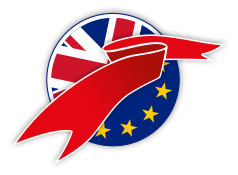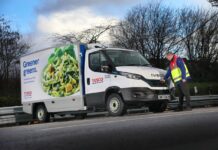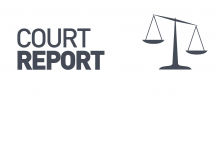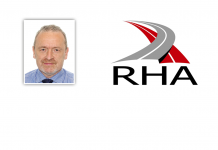On 7 February 2018, the UK Government introduced a haulage permits and trailer registration bill, as part of its ongoing Brexit preparedness efforts. The bill aims to give the Department for Transport the necessary powers to adopt certain contingencies in case the UK and the EU27 do not manage to reach an agreement in time for exit day.
As of the date of Brexit (or the end of the transition period if one is agreed), a Community Licence issued in the UK will no longer be valid in the EU27. An agreement with the EU will be needed to maintain access to the EU road haulage market for UK road transport operators. At this stage, FTA cannot guarantee what the outcome of the negotiation will be. The options range from a fully liberalised system, maintaining the current level of access with recognition of operator licensing, to a possible permits system.
Such a permit system could be based on a virtually unlimited number of permits allocated on an annual basis. Another option would be a system of quotas but with sufficient permits to cover the existing number of crossings. In the worst-case scenario, the number of quotas could be insufficient and imply rationing. In the absence of any agreement, the default situation is a permit system under the OECD called ECMT permits, which would only cover a small part of the needs.
 The road haulage bill is designed to grant the UK Government the power to issue and allocate permits, should this be needed as part of the post-Brexit arrangements. Criteria for permit allocation will be defined in secondary legislation.
The road haulage bill is designed to grant the UK Government the power to issue and allocate permits, should this be needed as part of the post-Brexit arrangements. Criteria for permit allocation will be defined in secondary legislation.
Any solution implying volume restrictions on the number of lorries allowed to operate between the UK and the EU would be completely unacceptable. FTA will continue to press for a solution that ensures continued unrestricted passage of trucks, preferably through an EU-UK road transport agreement. We have reluctantly supported the bill as a contingency, in the expectation that it will never be used. Instead the focus of Government needs to be on negotiating the unrestricted movement of goods vehicles as part of a UK-EU agreement.
In February I met with officials from the Department for Transport in London and discussed the implications of a permit scheme for Northern Ireland. I outlined the unique circumstances around Transport operations here and illustrated this using Government statistics that show 10.7% of Operator Licences in Great Britain are Standard International compared to 27% here.
Our reliance in the ability to transport goods in and out of the EU, primarily the Republic of Ireland means a permit scheme would simply be catastrophic for the local industry.
Thankfully DFT agree with our stance and advised that a special deal between Northern Ireland and the Republic is likely meaning operators will be exempt from requiring permits for the Island of Ireland, as long as the operator is based here.
Trailer Registration
As part of the preparations for exiting the EU, the Government intends to ratify the 1968 Vienna Convention on Road Traffic. The Vienna Convention is a UN international treaty, designed to facilitate international road traffic and increase road safety by establishing uniform traffic rules. It has been signed and ratified by 75 countries. The UK signed the Vienna Convention in 1968, but is yet to ratify it.
The UK is already broadly aligned with the terms of the Vienna Convention but a notable area of divergence is in trailer registration which is a mandatory requirement.
Unlike most of mainland Europe, the UK does not currently mandate the registration of trailers. As a result, the Bill includes the requirement to introduce a trailer registration scheme for operators crossing international borders.
Therefore, the Government intends to require the registration of commercial trailers over 750kg and non-commercial trailers over 3500kg that enter a foreign country that has ratified the 1968 Convention. The mandatory scope of trailer registration will apply solely to those trailers travelling to countries that have ratified the 1968 Vienna Convention.
Trailers travelling to the Republic of Ireland, Spain, Cyprus and Malta will not be required to register unless they pass through a foreign country that has ratified the Vienna Convention on the same journey.
Trailers from Northern Ireland will only need to register should they be travelling to mainland Europe.
FTA is currently unclear how the scheme will be administered by the Driver and Vehicle Licensing Agency (DVLA.) and possibly locally here by the DVA However, DfT intends the trailer registration scheme to be operational by the end of 2018. Following launch, trailer users in the mandatory categories will be required to register with the DVLA through a digital service.
Once registered, trailer users will be required to carry their registration certificate and must affix their registration plate to the specified trailer. It is expected that an initial one-off fee will be paid (possibly around £55).
Any scheme must remain voluntary in the UK. Where trailers are required to be registered there must be a quick and burden free system online. Copy paperwork must be acceptable when plates need to be produced, or left with the trailer.
The Haulage Bill is good housekeeping in the current Brexit situation (which is basically the unknown!). It’s important we have contingency plans in place and FTA will continue to advise, hold to account and lobby Government on the best means to safeguard our industry as we navigate Brexit.















